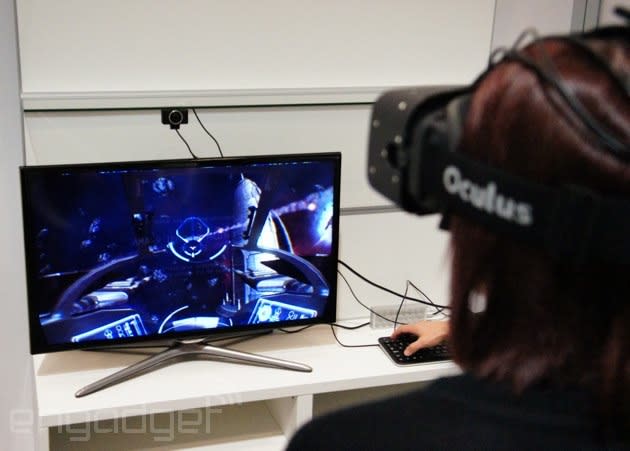Internal game development at Oculus VR is already happening (and yes, it involves John Carmack)

It's hard to imagine John Carmack not developing games. Sure, he signed on to Oculus VR as chief technology officer, but he's also the man who co-created such gaming classics as Doom, Quake and Wolfenstein 3D. With Oculus Rift, Carmack and the many talented game developers working at Oculus VR have a new test on their hands: showcasing their new device with impressive software. Thus far, Oculus has relied on third parties to create demonstrations of the Rift. From our conversation this morning with CEO Brendan Iribe and Director of Developer Relations Aaron Davies, it sounds like that may change in 2014.
"He's working on a lot of exciting tech," Iribe told us of Carmack's role. "But, his heart and soul and history certainly lies in the game-development side." That means, like Epic Games before them and id Software before Epic, Carmack and co. are working on software that'll showcase the Rift's many functions. "That's always been Epic's philosophy. And it's what allowed them to make what they made. It's certainly been id's philosophy in the past. It's been John Carmack's philosophy -- you gotta eat your own dog food here, and develop internal content also," he told us.
So that's what Carmack and Oculus are doing, with plenty of game developers in-house to expedite the process. "You'll see, over the next six to 12 months, if you monitor the careers page, we are putting up our team out there. We wanna make this a very open company. Pay attention to that page and you'll see more and more game developers showing up," Iribe added.
That's to say nothing of supporting external dev studios, both big and small, or even outright publishing third-party games. The company even hired ex-EA Partners director David DeMartini to lead that charge. There's also a blend of the two, where the folks at Oculus discover an especially exciting mechanic, but don't have the means to dig in themselves. "When we catch on to a nugget that seems like it should become a full experience, we may end up doing it ourselves. We may end up putting it out and working with a third-party studio that does. We've actually started to engage with third-party studios like that through the relations group, the publishing group, as well as our own development," he said.
Of course, when the Rift ships later this year, it'll have some form of UI built in for navigation and management. All that is being developed in-house at Oculus VR. In terms of internal game development, though, that avenue is just now being explored. "We'll see where it goes," he added. "But I wouldn't be surprised if we didn't do more and more internal development."
















